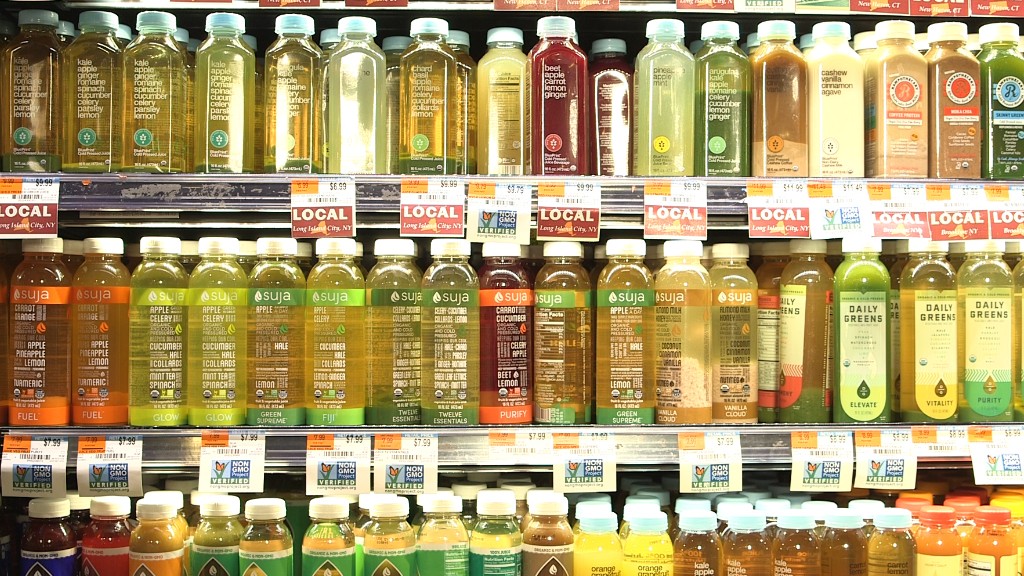
The stock market is not far from its all-time highs. That has some wondering if investors are drinking the proverbial Kool-Aid and ignoring risks.
But a better question might be whether or not investors are drinking the SkyPeople Fruit Juice.
SkyPeople what?
Odds are you probably haven't heard of SkyPeople Fruit Juice (SPU). The company, headquartered in the Chinese city of Xi'an, is puny. Its market value is just $42 million. But SkyPeople Fruit Juice does have shares listed in the U.S. on the Nasdaq.
And it has been one of the hottest stocks on the market. Shares have doubled in the past week and are up more than 135% this year.
So what is SkyPeople Fruit Juice? As the name implies, it makes fruit beverages and concentrates. Apple, pear and kiwi are particularly popular flavors. The company sells Hedetang branded juice -- mostly in China, but also in Mongolia and New Zealand.
The reason for much of the excitement? SkyPeople Fruit Juice announced a few months ago it would be selling a 51% stake in a subsidiary to the Chinese government backed firm Shaanxi New Silk Road Kiwifruit Group.
That's made the stock a favorite plaything of day traders.
The SPU ticker is often one of the top trenders on investing social media site StockTwits.
Shares have been extremely volatile this week though due to a report by a research firm called GeoInvesting, which seemed to suggest that some traders may have been pumping up the stock.
But GeoInvesting later shot off a series of tweets saying that the media was making incorrect assumptions about the firm's research. (And naturally urged people to become paid subscribers to receive premium reports.)
So is SkyPeople Fruit Juice (Am I the only one who thinks of Soylent Green when you hear this name? SkyPeople Fruit Juice is people!) the next Minute Maid or Tropicana? Should you sell Coke (KO) and Pepsi (PEP) to buy this stock? Not exactly.
This stock is extremely risky and it seems as if many people are trading it for short-term gains, not investing in it because they think it will become a global beverage giant over the long haul.
It's also worth noting that shares were languishing well below $1 earlier this year before the company did a reverse stock split to push its stock price higher.
In a reverse split, a company cuts the number of its shares in order to prop up the price. It doesn't change the value of the company, but it often allows penny stocks to continue to meet minimum price requirements to stay listed on a major exchange.
What's more, nearly 15% of the company's stock is held by short sellers, investors who bet that a stock is going to head lower. (Although the shorts have been wrong so far, which means they are getting squeezed just like the fruit that goes in to the juice!)
There have also been many instances of accounting problems with small Chinese companies like SkyPeople Fruit Juice. It makes you wonder if the stock is ripe (sorry) for China bear Carson Block of Muddy Waters to take a closer, skeptical look at it.
This is not to say that there's anything fishy going on with SkyPeople Fruit Juice, per se. But the stock still looks more sour than sweet given how far it has run up in such a short period of time.


